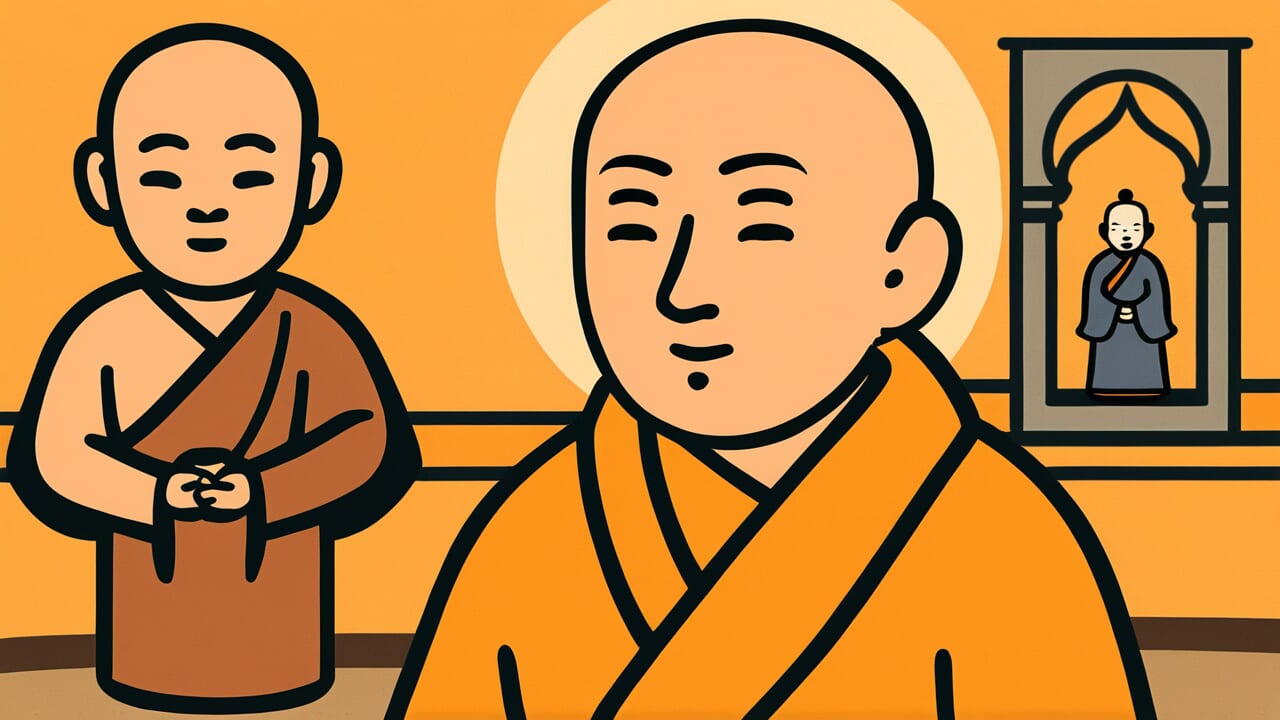How to Read “You can’t make a priest with just robes”
Koromo bakari de oshō wa dekinu
Meaning of “You can’t make a priest with just robes”
This proverb means that simply arranging your appearance or following formalities doesn’t give you true ability or qualifications.
Just as wearing priestly robes doesn’t make you a real priest, copying titles, appearances, or forms doesn’t give you the skills or character needed for that role.
People use this saying to warn against certain behaviors. Getting a license and immediately calling yourself an expert. Getting a job title and thinking you suddenly have real ability. Buying luxury brands and believing your character has improved.
True ability comes only from daily effort, accumulated experience, and inner growth.
Modern society often values social media appearances and titles. But this proverb sounds an alarm about losing sight of what really matters.
Arranging the outward form is just the entrance. The real training that comes after is what truly counts.
Origin and Etymology
The exact first written appearance of this proverb is unclear. However, it likely emerged from Japanese society where Buddhist culture runs deep.
“Koromo” refers to the robes that monks wear. In Buddhism, priests have distinctive clothing like kesa and samue. Wearing these garments symbolizes leaving worldly life behind.
But no matter how magnificent the robes, wearing them alone doesn’t make you a true monk. You must study Buddhist teachings, undergo training, and make daily efforts toward enlightenment. Only then do you become worthy of being called a priest.
During the Edo period, the temple system became established. The role of monk gained social status. In this context, some people probably started calling themselves monks by arranging only the outward forms.
They wore impressive robes on the outside. But their inner cultivation didn’t match. This proverb spread as a warning against such people.
This expression was born precisely because Buddhism values spirituality. It sharply points out the gap between appearance and reality.
The saying captures a Japanese value: questioning essence over form. It’s a condensed expression of this worldview.
Usage Examples
- Buying a new suit might make you look like a manager, but you can’t make a priest with just robes—it’s meaningless without the ability to lead your team
- Just because you passed the certification exam, you can’t make a priest with just robes, so you need field experience to become a true professional
Universal Wisdom
Humans have a tendency to think their insides have changed when they decorate their outsides. Wearing new clothes changes your mood. You feel like a different person.
Getting a title makes you feel like you’ve truly grown. Everyone has experienced this psychology.
But our ancestors saw through this human weakness. Arranging your appearance is easy. Polishing your inner self is difficult.
That’s why people tend to escape into the easier path of “starting with the form.”
This proverb has been passed down for generations because humans have always fought this temptation. In every era, some people have only fixed their appearances.
And in every era, people with eyes to see through that pretense have also existed.
True value is hard to see. Days of training, steady effort, the attitude of learning from failure. These things lack glamour.
But they are essential elements that shape human character. Our ancestors didn’t get distracted by surface shine. They valued the wisdom to discern essence.
They packed this short phrase with that message. Human essence appears not in clothing but in actions. This universal truth lives here.
When AI Hears This
The moment you put on priestly robes, you certainly achieve a “priest-like state”—a low-entropy, ordered condition. But the second law of thermodynamics states that all systems inevitably move toward disordered, high-entropy states.
If you just wear the robes and do nothing, that “priest-likeness” will definitely collapse over time.
What’s important here is that maintaining order requires continuous energy input. A refrigerator maintains the ordered state of low temperature by constantly running electricity.
Cut the power and it inevitably returns to room temperature. Similarly, to make the formal order of priestly robes meaningful, you must continuously pour in the “energy” of daily training, learning, and practice.
Chanting sutras, sitting in meditation, observing precepts—these are all energy-input operations for maintaining order.
What’s even more interesting is that states with only form arranged are merely apparent low entropy. They’re actually extremely unstable.
A priest’s robes without substance are like an ice sculpture without insulation. The surface looks orderly, but it’s rapidly collapsing from within.
A real priest maintains low-entropy states in both appearance and substance through the energy input of training. This proverb shows a remarkable insight: the physical laws governing the universe also penetrate human society.
Lessons for Today
This proverb asks you about your “resolve to become genuine.” Modern times make arranging forms easier than ever before.
You can get certifications online, fill out your profile, and line up the right-sounding words. But that’s exactly why we need to ask ourselves: Do I really have the substance to match this sign I’m displaying?
The important thing isn’t to reject formalities. Wearing the robes, getting the certification—these are necessary to reach the starting line.
The problem is being satisfied with just that. Real growth lies in the steady accumulation that comes after.
When you aim for something, you can start by arranging your appearance and formalities. But that’s not the goal—it’s the start.
Learn a little each day, learn from failures, build up experience. In that process, you become genuine.
Rather than spending time decorating your outside to impress others, value the effort you make where nobody’s watching. Genuine brilliance naturally radiates from the inside.



Comments